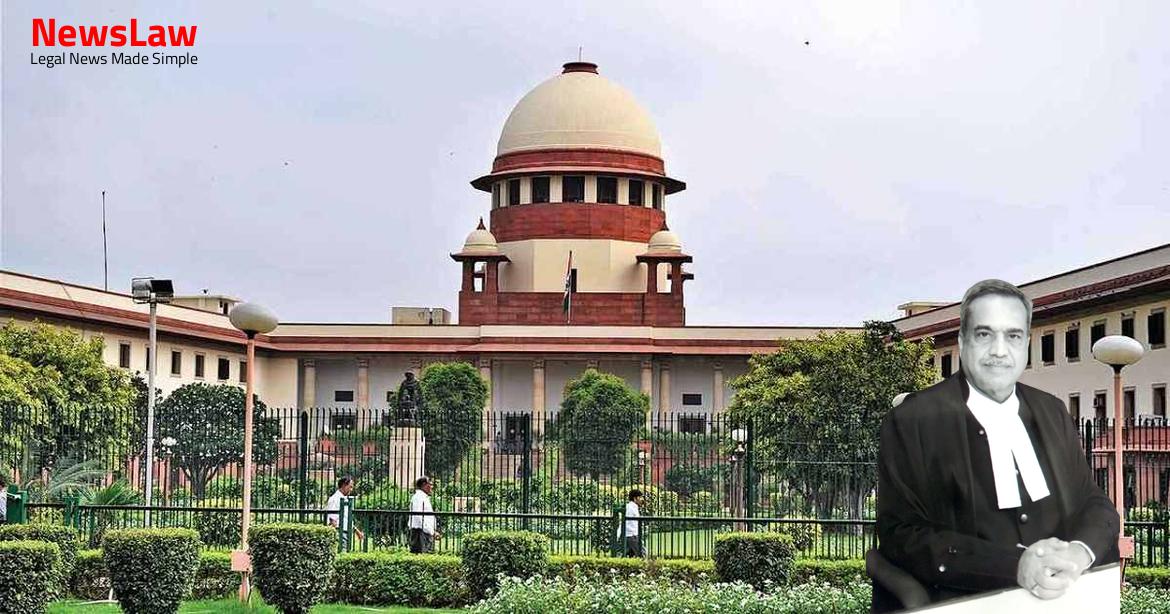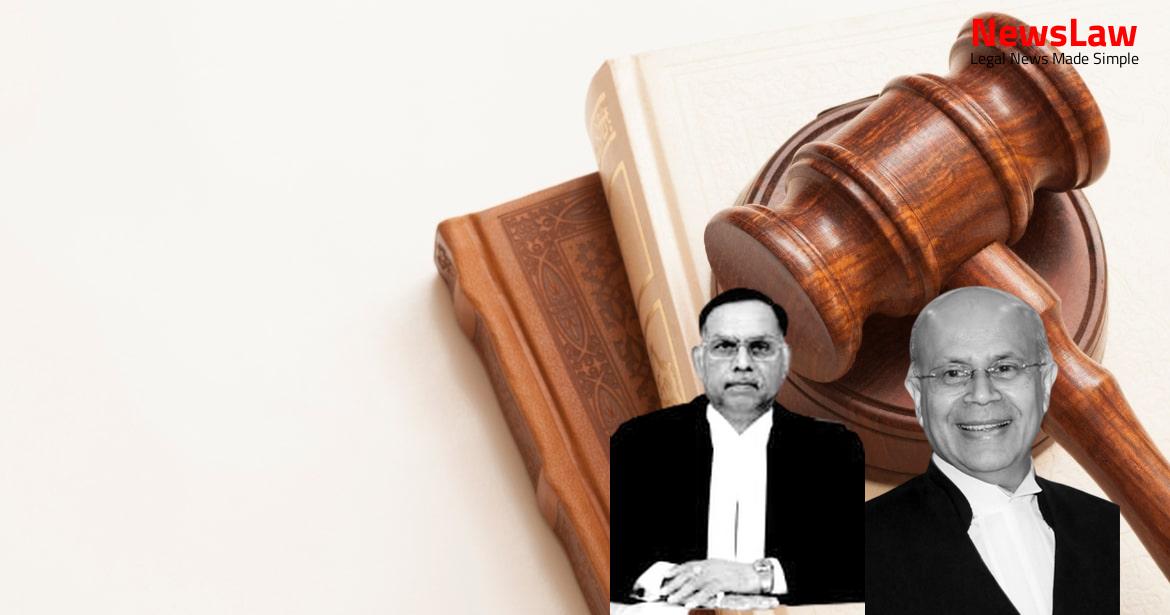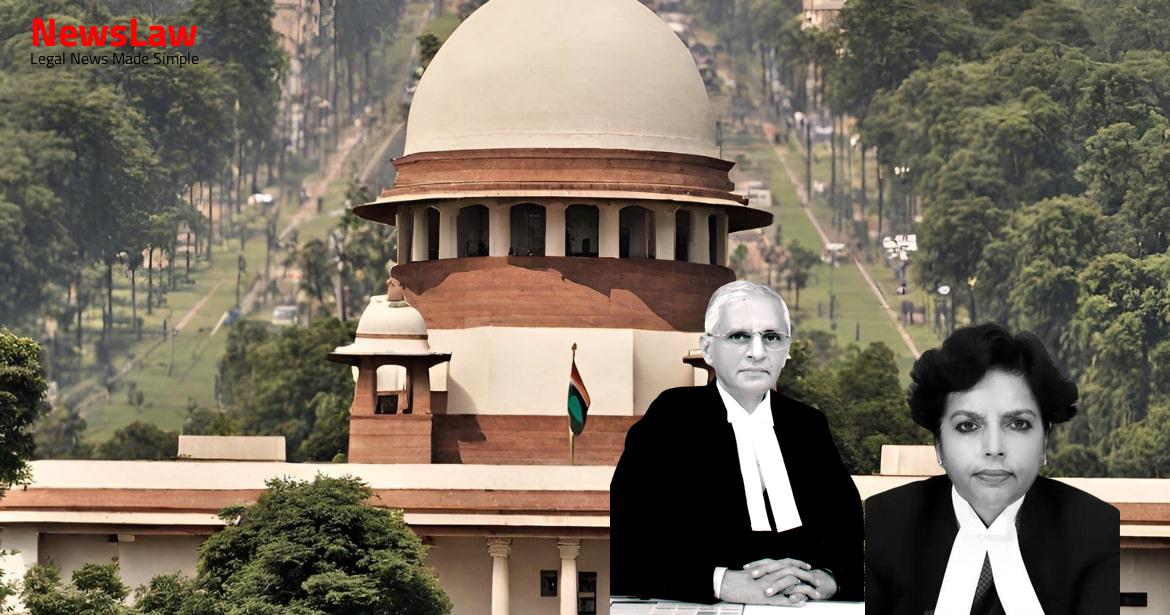A significant ruling by the Supreme Court of India has been made concerning the eligibility criteria for Assistant Teachers in Uttar Pradesh. The case addresses the interpretation of ‘pursuing’ teacher training courses for the Teacher Eligibility Test, impacting the future appointments in the education sector. This judgment impacts the educational landscape, providing guidance on the standards required for teachers in the state.
Facts
- The dispute in this matter is related to the appointment of Assistant Teachers in Class VI to VIII.
- Several government orders and notifications were issued regarding the eligibility criteria for Teacher Eligibility Test (TET) in Uttar Pradesh.
- Candidates were allowed provisionally to appear in the TET examination with the condition that the TET certificate would only be valid after passing the TTC examination.
- A Government Order dated 11.7.2013 was issued to fill up 29334 posts of Assistant Teachers in Senior Basic Schools, specifying the eligibility criteria as B.Sc. and TTC recognized by the NCTE and having passed the TET.
- The High Court directed the State Government to adhere to the NCTE guidelines for eligibility and issue appropriate instructions.
- Notification by NCTE dated 11 February, 2011 and Government Order dated 15 May, 2013 determine eligibility for TET examination.
- Only those with academic and professional qualifications, along with training qualification or pursuing teacher education courses, can appear for the TET examination.
- Interpretation of ‘pursuing’ by the Court specifies that only final year teacher training course students are eligible for TET.
- Judgment and order of the learned Single Bench on 8.5.2018 was appealed before the Division Bench of the High Court.
- Appeals filed against the Division Bench’s common judgment and final order on 30.05.2018 in Special Appeal NO.506/2018.
Also Read: Court’s Jurisdiction in Re-appraising Arbitrator’s Findings
Issue
- The issue in question is whether incumbents pursuing Teachers Training Course (TTC) recognized by NCTE or RCI can appear in the Teachers Eligibility Test (TET) prescribed by NCTE.
- Basic education is defined under Section 2(1)(b) of the Act of 1972 as education up to class VIII provided in schools other than high schools or intermediate colleges.
- Section 19 of the Act of 1972 grants rulemaking power to the State Government to make rules for carrying out the purposes of the Act.
Also Read: Contrary Directions in Issuance of Letter of Intent
Analysis
- The TET is a minimum qualification required for appointment as a teacher
- Article 21A mandates free and compulsory education for children aged 6 to 14
- Eligibility for TET includes those with specified academic and professional qualifications
- Those pursuing teacher education courses recognized by NCTE or RCI are also eligible for TET
- The issue revolves around the interpretation of the word ‘pursuing’ in Clause 5(ii) of the NCTE guidelines.
- The Division Bench of the High Court added unnecessary conditions to the guidelines, which go beyond the text of Clause 5(ii).
- The guidance clearly states that a person admitted and pursuing a teacher training course is eligible to appear for the TET examination.
- The High Court’s imposition of additional requirements like appearing in the TTC exam or result declaration by a specific date is not in line with the guidelines.
- The term ‘pursuing’ means undergoing or proceeding further in the training course.
- Appointment orders were issued to candidates who passed TET before completing the first year of training, highlighting compliance issues.
- All candidates in question were pursuing the teacher training course by the cut-off date, fulfilling eligibility criteria.
- The literal construction rule dictates that words should be understood in their natural sense, supporting the applicants’ eligibility to appear for the TET exam.
- The appointing authorities must adhere to the NCTE guidelines and government orders in issuing appointment letters to Assistant Teachers.
- The High Court’s interpretation regarding candidates awaiting TTC results by the form-filling date is deemed invalid, as it adds unnecessary conditions.
- Challenged appointments based on such flawed interpretations can be reviewed by the District Basic Education Officer upon petitioners’ request.
- Words of a statute are first understood in their natural, ordinary or popular sense
- Phrases and sentences are construed according to their grammatical meaning, unless it leads to absurdity or the context suggests otherwise
- Lord Brougham’s approach is to take the words as given by the legislature with their natural implied meaning, unless controlled or altered by the Preamble or context
- Lord Haldane emphasized that if language has a natural meaning, it should not be departed from unless the context requires it
- Lord Wensleydale’s rule states that the grammatical and ordinary sense of words is followed unless it leads to absurdity, in which case modifications can be made to avoid inconsistency
- The decision of the High Court is not sustainable
- The court holds that the decision is incorrect to the extent mentioned
- Specific points of the High Court decision have been found to be flawed
Also Read: Application for Stay in Civil Suit Rejected: Court’s Legal Analysis
Decision
- The impugned orders of the High Court are modified.
- District Education Officers instructed to identify candidates who have passed Graduation without Science or Mathematics and have been appointed as Assistant Teachers.
- Exercise to be completed within three months.
- Consideration of the second proviso to Section 23 added by the Right of Children to Free and Compulsory Education Act, 2017.
- No costs imposed.
- The appeals are allowed.
Case Title: OMKAR SINGH Vs. THE STATE OF UTTAR PRADESH
Case Number: C.A. No.-005564-005564 / 2019



